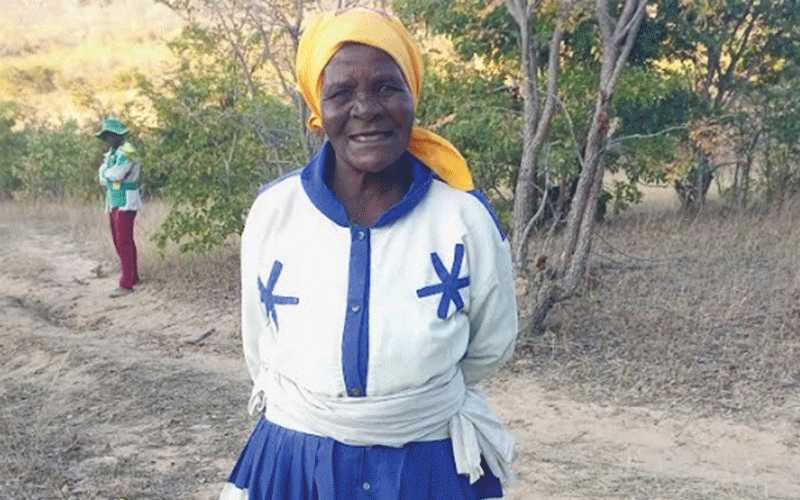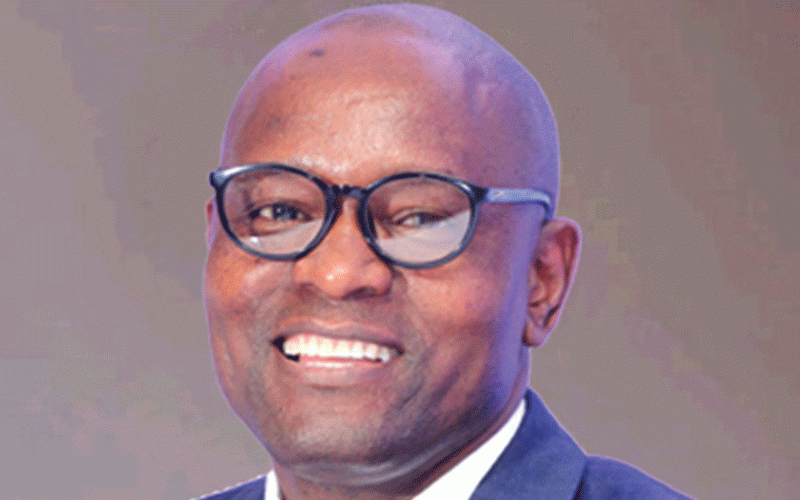GOGO Margaret Murekachiro’s life was one filled with sorrow and uncertainty.
Now aged 71, she never thought one day, she would be smiling and enjoying her life in Chipendeke area, rural Mutare.
Hers was a painful life, coupled with the turn of events that were to haunt her for four decades.
For all the years, she longed for death as she had lost a purpose to live.
She had suffered two incidents of obstetric fistula, one of the most serious and tragic childbirth injuries.
- Triangle retrenches as economy bites
- Caledonia in US$42 million capex drive for 2025
- Mukuru launches mobile wallet in Zim to bolster financial inclusion
- Economy heads for a bloodbath: Biti
- NBS completes Glaudina housing project ahead of schedule
Obstetric fistula is a hole between the birth canal and bladder and/or rectum, caused by prolonged, obstructed labour without access to timely, high-quality medical treatment.
The condition results mostly from ischemic trauma caused by prolonged and obstructed labour.
Murekachiro’s first incident was during the war in the late 1970s.
Her medical condition recurred in the early ’80s, something she lived with until 2022 when help came through.
Luck knocked on her door 40 years later as she became one of the beneficiaries of the obstetric fistula repair clinics that are being conducted across the country by the Health and Child Care ministry supported by partners, United Nations Population Fund (UNFPA), Fistula Foundation and Artemedis International.
She becomes one of the survivors of the dreadful conditions that affect women.
The condition is highly anti-social as victims are segregated and frowned upon due to the continuous leaking of urine and sometimes faeces, leading to them emitting an odour.
A majority of the women suffering from obstetric fistula go untreated as they are not aware of the possibility of a repair.
“I suffered with this condition and never thought I would be cured in this lifetime. My condition was giving me sleepless nights.
“I became a lone figure in the community because no one wanted to come close to me. I also lost courage and just waited for what was to come,” she said.
As fate would have it, besides living a segregated life from a condition that was a culmination of her efforts to have a family with her husband, he remarried twice, leaving her with no option but to live in solitary confinement in her house at the homestead she shared with her co-wives.
Worldwide, obstetric fistula affects between 500 000 and 100 000 women every year, with Africa and Asia bearing the highest numbers.
Murekachiro gave her all to Jesus Christ, finding solace in church services in a bid to deal with loneliness.
Forty years later, her wish and desire for change was granted and angels came her way.
“Since no one wanted to be associated with me at home and in the community, I joined a church, St. Luke’s Apostolic Ejiwel Jekenishen Church in my local area.
“The congregants welcomed me despite my condition. They didn’t detest me for my foul smell, but they embraced me and helped me to find a solution,” she said.
“Only in 2022 did they manage to find a clue when one of the church members came across a poster that was inviting people with a condition similar to mine to go for free surgery at Mashoko Mission Hospital. They linked me to the programme officer of the repair project, who assisted me throughout until I went for the repair surgery.”
Today, Murekachiro is ecstatic over the beautiful turn of events in her life, especially when she was slowly losing the hope of a miracle in her lifetime.
“I became a laughing stock in the whole village. No one wanted to be associated with me and I would come to the church, which became my happy place,” she said.
Though her bitter life became sweet after so long, she is still in pain over what life brought her.
She lost her husband’s love and affection and also, her only child (the one she had before her challenge with obstetric fistula) left home and she has never seen her again for more than 20 years.
“Even through the church’s intervention to try and reconcile us, my husband still hasn’t warmed up to me. Before the intervention, he would never set foot in my house or even to greet me, he would just ignore me. Now he comes to my house, but does not talk to me,” Murekachiro said.
“I long so much to see my daughter as well. She left home and has never reached out, but the last time I heard of her, it was that she now has grandchildren,” she added, tears trickling down her cheeks.
A congregant who spoke on condition of anonymity said Murekachiro’s condition was a painful one.
“We have been with her for many years now. Despite what she was going through, she never stopped worshipping the Lord and she never quit church. Instead, it became her most treasured home and we are very happy for the positive turn of events in her life,” the congregant said
Health and Child Care ministry reproductive health officer Chipo Dembedza said national data reveals that obstetric fistula affects women of all ages.
“Annually, we perform between 120 and 200 repairs, with the number of recruitments determining the number of procedures. Unfortunately, some women, like an 80-year-old with underlying health conditions, may be too frail for repair. However, as long as a woman is fit, repair surgery is possible,” Dembedza said.
“Our biggest challenge is identifying women with fistula, as many are unaware that it’s a treatable condition. Shame and isolation often prevent them from seeking help. But the Ministry of Health and Child Care offers free repair surgeries, thanks to the support from partners.”
Mervyn Venge, a consultant obstetrician and gynaecologist, said it is very possible for someone in their old age to be healed from the disturbing condition.
“She (Murekachiro) is a testimony to that. Success of the operation depends on where the fistula is located, the size and whether it’s simple or complicated,” he said.
According to the UNFPA, left untreated, obstetric fistula causes chronic incontinence and can lead to a range of other physical ailments including frequent infections, kidney disease, painful sores and infertility.
The physical injuries combined with misperceptions about the cause of fistula often result in stigma and discrimination, leading to social isolation, psychological harm and mental health issues.
Women and girls with fistula are often unable to work, and many are abandoned by husbands and families and ostracised by their communities, driving them further into poverty and vulnerability and decreasing their quality of life.
In 2003, the UNFPA and its partners launched the global Campaign to End Fistula, now active in more than 55 countries, including Zimbabwe, working to prevent and treat fistula and to rehabilitate fistula survivors.
To date, the UNFPA, as the leader of the global campaign, has directly supported more than 129 000 surgical repairs for women and girls, and partner agencies have supported thousands more.
These treatments help to restore survivors’ health and hope, empowering them to reclaim their lives and dignity.
A report by Amnesty International says although repair of obstetric fistula was established as a public health intervention in 2015, research has shown that access to maternal healthcare, which could prevent obstetric fistula as well as treatment for obstetric fistula, has remained limited for many women and girls in Zimbabwe
According to the World Health Organisation, obstetric fistula is preventable by reducing the number of early and unplanned pregnancies, ending harmful practices (such as child marriage) and ensuring access to quality emergency obstetric care, especially access to caesarean sections.
When access to quality treatment is available, obstetric fistula is also curable, with surgical success rates as high as 92%.













